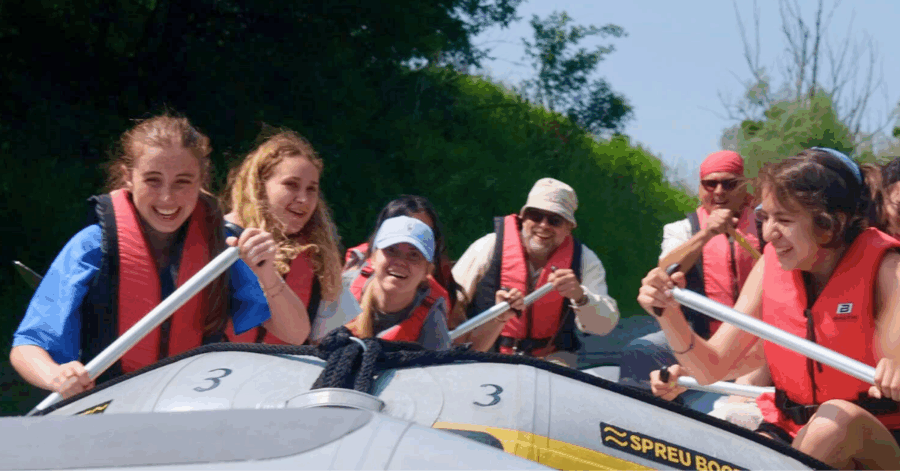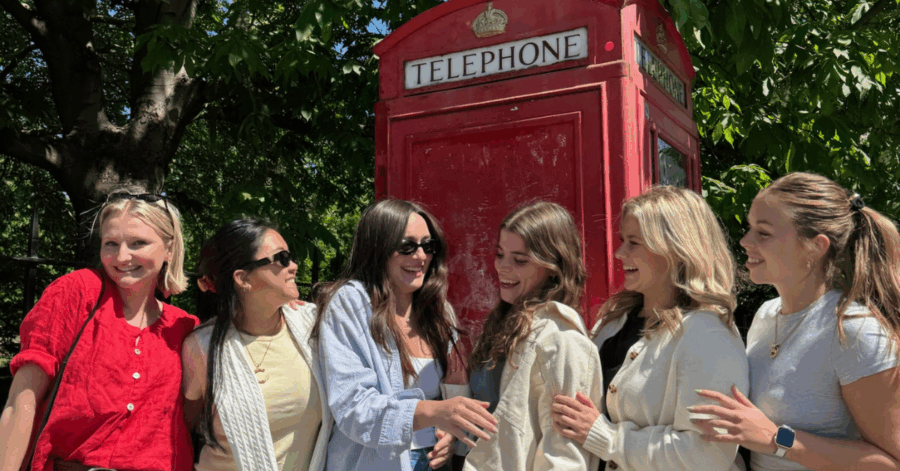
Good morning friends and family,
There are many adventures I could recount for you since the last time we wrote but, because I think knowing about the requirements that go into studying abroad is the most important, I will spare no time on said adventures. I do not believe that my rainy trek around the Stonehenge site would be a fit tale to tell here, or how the wind was so strong that it blew the hail sideways. Hiking the ruins of ancient Dartmoor tribes may take too much of our time, let alone describing the warmth of the fire that’s been burning since 1845 in a hearth at the Warren House Inn. I wouldn’t want to go on about walking the four mile Wildwood trail of the Sherwood Forest. And you really would not be interested in my exploration of the forests around Exeter, nor in the oddities I found or the strange figures that lurked about the woods.
Certainly none of that would be of interest to my audience, so I will spare no time on those adventures.
Instead, I will beguile you with the trials of studying abroad. These are some of the hardships that one might face while traveling.

Let us begin at home – where every tale starts. To begin the process of studying in the historic United Kingdom, one must apply for a visa. Right off the bat, you should know that it is not imperative that you do this at home. You can get your visa stamp at customs upon arrival. There are lots of fees associated with applying beforehand, and due to the length of time required to do so, it can be a risk if you are departing within sixty days. If you are like me and worked up the courage to go through with a program less than two weeks before the UT applications closed, it is critical that you manage your time well. Be warned that there may be delays in your application that will seriously hamper your plans (for example, if you forgot a document, things get filed improperly, nobody can provide you with any information on the whereabouts of your application, etc.). I took on this challenge nearly two months prior to my program beginning, which quickly enveloped all of my time. My advice is to be prepared for the cost and time requirements.

So, one flight reschedule later, a trip to the UK embassy, numerous calls and emails to the visa office, and you’re off! You’ve landed at your destination. What’s next? Money. You should pull out enough cash to get you to wherever you will be staying. In England especially, card payment may be a bit tedious to work with, so you’ll want to pay in cash. I was lucky to have pulled out enough for a train ticket to my train station (sounds weird, but a bus wouldn’t have gotten me to my train on time), and a taxi from my station in Exeter to my destination (which only accepted cash payment).

You’ve probably packed plenty of clothes, gear, and survival essentials, but are you prepared for the weather? It is very wet and cold in England for most of the Spring and, while this may not be the same where and when you are going, the weather is going to be vastly different from Texas. Once you arrive, I would suggest making your way to the nearest department store or shopping center (if one exists in your area) to pick up thick blankets, food, and toiletries. A duvet is nice while in bed, but a wind breaker and boots are good for being out and about.

If you are lucky (or prepared) enough upon arrival, partake in your orientation’s social events. Join a society or organization. Do something to get involved with people, because I can tell you that there won’t be many opportunities to meet new people otherwise. An individual module might meet once a week for an hour, making it nearly impossible to make friends with your classmates when you’re cramming a week’s worth of discussion into that time. Go on tours whenever possible. There are a lot of interesting people out there to talk to. Even if you never see them again, you will have shared an experience together that will last a lifetime.

If socializing isn’t your forte, or you simply find it difficult to make friends, consider solo travel. Being in a foreign country full of amazing cultures and people is a fantastic way to grow as an individual. Taking time to travel alone, to manage your time and money, to think about your experience up to this point will teach you about yourself. Use this opportunity to learn about the world and about your place in it. You were among the minority to travel the globe, so be sure to take something back when you return home.
In just a few days, I will be celebrating my birthday away from my friends and family for the first time in my life. I hope to make this year even more productive and full of growth.
We’ll see y’all later, friends!
Hook ‘em!
Julian Kadolph
Program Coordinator note: U.S. Citizens who are only studying in the UK for less than 6 months are not required to obtain a Tier IV visa. They receive a free Student Visitor Visa Stamp upon arrival at customs. Students who are working or interning in the UK for any length of time will need to obtain a Tier IV visa prior to departure. Non-U.S. citizens may need to obtain a Tier IV visa as well, but should always consult the British consulate for immigration requirements for their nationality. Students who study abroad in the UK for more than 6 months will need to obtain the Tier IV visa prior to departure. To learn more, visit the UK visa website.
This post was contributed by Julian Kadolph, a 2019 Global Ambassador majoring in English.
Don’t get left behind. Read more about Julian’s experience in England>>





